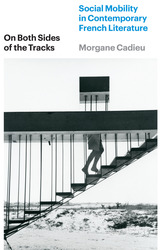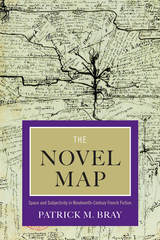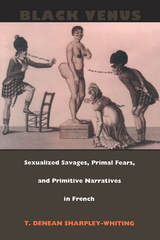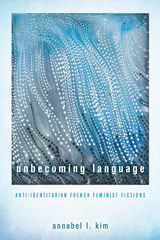The Surprising Effects of Sympathy: Marivaux, Diderot, Rousseau, and Mary Shelley
University of Chicago Press, 1988
Cloth: 978-0-226-50710-1
Library of Congress Classification PQ637.S96M37 1988
Dewey Decimal Classification 843.509353
Cloth: 978-0-226-50710-1
Library of Congress Classification PQ637.S96M37 1988
Dewey Decimal Classification 843.509353
ABOUT THIS BOOK | AUTHOR BIOGRAPHY | TOC
ABOUT THIS BOOK
Through readings of works by Marivaux, Diderot, Rousseau, and Mary Shelley, David Marshall provides a new interpretation of the eighteenth-century preoccupation with theatricality and sympathy. Sympathy is seen not as an instance of sensibility or natural benevolence but rather as an aesthetic and epistemological problem that must be understood in relation to the problem of theatricality.
Placing novels in the context of eighteenth-century writing about theater, fiction, and painting, Marshall argues that an unusual variety of authors and texts were concerned with the possibility of entering into someone else's thoughts and feelings. He shows how key eighteenth-century works reflect on the problem of how to move, touch, and secure the sympathy of readers and beholders in the realm of both "art" and "life." Marshall discusses the demands placed upon novels to achieve certain effects, the ambivalence of writers and readers about those effects, and the ways in which these texts can be read as philosophical meditations on the differences and analogies between the experiences of reading a novel, watching a play, beholding a painting, and witnessing the spectacle of someone suffering. The Surprising Effects of Sympathy traces the interaction of sympathy and theater and the artistic and philosophical problems that these terms represent in dialogues about aesthetics, moral philosophy, epistemology, psychology, autobiography, the novel, and society.
Placing novels in the context of eighteenth-century writing about theater, fiction, and painting, Marshall argues that an unusual variety of authors and texts were concerned with the possibility of entering into someone else's thoughts and feelings. He shows how key eighteenth-century works reflect on the problem of how to move, touch, and secure the sympathy of readers and beholders in the realm of both "art" and "life." Marshall discusses the demands placed upon novels to achieve certain effects, the ambivalence of writers and readers about those effects, and the ways in which these texts can be read as philosophical meditations on the differences and analogies between the experiences of reading a novel, watching a play, beholding a painting, and witnessing the spectacle of someone suffering. The Surprising Effects of Sympathy traces the interaction of sympathy and theater and the artistic and philosophical problems that these terms represent in dialogues about aesthetics, moral philosophy, epistemology, psychology, autobiography, the novel, and society.
See other books on: 1712-1778 | Comparative literature | French fiction | Rousseau, Jean-Jacques | Shelley, Mary Wollstonecraft
See other titles from University of Chicago Press
























